 Annamaria Csizmadia is a scholar-teacher of cultural diversity. She has spent the past two decades studying how culturally relevant and group-specific factors shape developmental processes among monoracial and Multiracial (including immigrant) youth of color. She investigates how youth of color develop a positive ethnic-racial identity and the role that families play in helping youth navigate life in a racialized society where access to resources and opportunities is determined based on one’s race (as well as class and gender). She has a special interest in Multiracial youth development (in part because she is the proud mother of a wonderfully brilliant Multiracial daughter).
Annamaria Csizmadia is a scholar-teacher of cultural diversity. She has spent the past two decades studying how culturally relevant and group-specific factors shape developmental processes among monoracial and Multiracial (including immigrant) youth of color. She investigates how youth of color develop a positive ethnic-racial identity and the role that families play in helping youth navigate life in a racialized society where access to resources and opportunities is determined based on one’s race (as well as class and gender). She has a special interest in Multiracial youth development (in part because she is the proud mother of a wonderfully brilliant Multiracial daughter).
Her work is informed by cultural ecological and critical race theories. In this research she highlights the important role of family ethnic-racial socialization, such as how parents teach children pride in their race, ethnicity, and culture, and help them cope with bias and discrimination. Her research demonstrates that these socialization practices along with other culture-specific parenting behaviors contribute to social-emotional adjustment among youth of color in important ways. Furthermore, she found that how parents identify their child’s race is a highly salient form of ethnic-racial socialization in families of Multiracial youth. Her theoretical and empirical work emphasizes the dynamic interaction of family socialization, Multiracial youth’s social cognition, and their social environment that shapes Multiracial youth development.
Alongside family practices and youth’s identity-related social cognition, Annamaria seeks to understand how influences outside the family shape development in monoracial and Multiracial youth. To this end, she has done some work on racial microaggressions. In 2019-2020, as part of the UConn Racial Microaggression Study research team, she surveyed over 1,200 UConn students of color to learn about their experiences with racial microaggressions in and outside the classroom. The study revealed that students who reported more interpersonal experiences that communicated to them invalidation, insult, or derogatory messages due to their racial group also reported lower levels of psychological well-being and more discrimination-related trauma symptoms. The team presented their research to the University administration and disseminated it through campus news and the Hartford Courant to inform policy change and the community.
Annamaria began developing a keen interest in cultural diversity when she started taking Russian and German languages as an elementary-school student in Hungary where she was born and raised. Speaking other languages besides her native tongue exposed her to all kinds of cross-cultural experiences. She learned about life in different cultural settings from pen pals from Eastern and Western Europe (prior to the fall of the Iron Curtain!), summer camps that hosted students from Austria to Korea, and school trips abroad. Her informal learning through travel and cross-cultural exchange in time shifted to formalized learning about linguistics, culture, literature, and, in the end, diversity issues in human development. She did not only traverse cultures and national borders, but eventually also disciplinary boundaries. After studying “Germanistik” and “Anglistik (German for German and English literature and linguistics) at the University of Trier, followed by a master’s degree in German Literature, in 2008 she completed her Ph.D. in Human Development and Family Studies at the University of Missouri.
In addition to her research, Annamaria feels privileged to learn about cultural diversity through daily interactions with her students at the UConn Stamford campus where she teaches courses on diversity
issues, intergroup relations, research methods, and other HDFS topics. As a scholar-teacher, she regularly engages students in her research. Over the years, she has published numerous journal articles, book chapters, and encyclopedia entries with her students and taken them to national conferences to present their work. Her most recent student-led papers utilized symbolic interactionism to propose mid-range models explaining the role of different types of socialization in White and Chinese youth development.
For her teaching excellence and commitment to student success, Annamaria has received several honors and awards, including the 2013-2014 Honors Mentor of the Year Award, 2019-2020 Center for Excellence in Teaching and Learning Teaching Fellow Award, the 2020 College of Liberal Arts and Sciences Faculty Excellence in Teaching Award, and most recently, the 2023-2024 Alumni Faculty Excellence Award in Undergraduate Teaching. Although these recognitions mean a lot to Annamaria, she is most proud of her students who secured competitive funding to do their research under her mentorship and went on to pursue graduate training at UConn, Harvard, and many other prestigious universities. As a first-generation college student and immigrant herself, providing access to opportunities and resources for her students, many of whom are also first-generation college students and of immigrant backgrounds, is the most fulfilling part of her job!
Annamaria also serves her professional community as an editorial board member of the Journal of Marriage and Family, Journal of Adolescent Health, and Journal of Research on Adolescence, and as a peer reviewer for two dozen journals, ad hoc conferences, and funding agencies. She is actively engaged in committee work related to diversity, equity, and inclusion in the department and at the Stamford campus.
Outside work, Annamaria loves traveling, reading, HITT workouts, dancing, home renovation, gardening, and spending time with her daughter, family, and friends. She lives in Stamford, CT where she feels right at home given that over 35% of the city’s population is foreign born.
 After scrambling to find three credits to fill his first semester schedule, David Schless convinced a professor to allow him to enroll in an upper-level sociology of aging class and was ultimately introduced to an undergraduate program he would have never otherwise contemplated. At a certain point, he was introduced to Dr. Nancy Sheehan, who agreed to become his undergraduate advisor and ultimately played a significant role helping him create a unique, robust undergraduate program that was heavy on gerontology and policy with exposure to many of the outstanding HDFR faculty at UConn in the mid-1980s. It was in a policy-oriented class with Dr. Steven Wisensale his junior year that he met Susan Martino, who he subsequently dated (post-UConn) and married in 1991. With much encouragement from Dr. Sheehan and adjunct professor Dr. Rikke Wassenberg, David become the first HDFR student to go through the relatively new UConn Honors program.
After scrambling to find three credits to fill his first semester schedule, David Schless convinced a professor to allow him to enroll in an upper-level sociology of aging class and was ultimately introduced to an undergraduate program he would have never otherwise contemplated. At a certain point, he was introduced to Dr. Nancy Sheehan, who agreed to become his undergraduate advisor and ultimately played a significant role helping him create a unique, robust undergraduate program that was heavy on gerontology and policy with exposure to many of the outstanding HDFR faculty at UConn in the mid-1980s. It was in a policy-oriented class with Dr. Steven Wisensale his junior year that he met Susan Martino, who he subsequently dated (post-UConn) and married in 1991. With much encouragement from Dr. Sheehan and adjunct professor Dr. Rikke Wassenberg, David become the first HDFR student to go through the relatively new UConn Honors program. 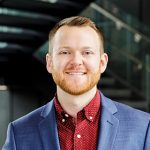 Dr. Ryan Watson studies the health and well-being of sexual and gender diverse (SGD) youth and young adults. Coming from a family with no college graduates, he began his research career when he spotted a flyer that advertised a research opportunity. The flyer hung outside his classroom at UCLA, mostly covered over by spring break and fraternity advertisements. He figured research was important if he wanted to go to graduate school someday, and he might first pursue a chance to get involved in research before signing up to party for spring break.
Dr. Ryan Watson studies the health and well-being of sexual and gender diverse (SGD) youth and young adults. Coming from a family with no college graduates, he began his research career when he spotted a flyer that advertised a research opportunity. The flyer hung outside his classroom at UCLA, mostly covered over by spring break and fraternity advertisements. He figured research was important if he wanted to go to graduate school someday, and he might first pursue a chance to get involved in research before signing up to party for spring break.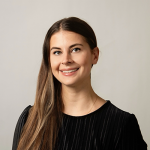 Cali Salafia is a Ph.D. candidate in HDFS who plans to defend her dissertation and graduate in Spring 2025. She earned her bachelor’s degree in psychology with a minor in philosophy from the University at Albany (SUNY) in 2017 and obtained a master’s degree in health psychology from Central Connecticut State University in 2020.
Cali Salafia is a Ph.D. candidate in HDFS who plans to defend her dissertation and graduate in Spring 2025. She earned her bachelor’s degree in psychology with a minor in philosophy from the University at Albany (SUNY) in 2017 and obtained a master’s degree in health psychology from Central Connecticut State University in 2020.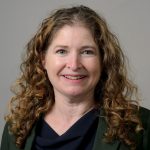
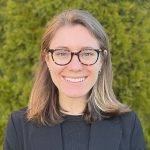 Antonia Caba completed her PhD in Fall 2024. She earned her bachelor’s degree in public health from Miami University in 2018 and her master’s in public health from Yale School of Public Health in 2020. In her time at UConn, Antonia worked on quantitative and qualitative research projects related to the determinants of health and wellbeing among LGBTQ+ adolescents and young adults. Under the mentorship of Dr. Ryan Watson, Antonia contributed to an NIH-funded, longitudinal study of Black and Latinx sexual minority men’s HIV prevention practices and a national survey of LGBTQ+ adolescents’ health and wellbeing in partnership with the Human Rights Campaign. Antonia’s dissertation focused on the role of social media and the internet in LGBTQ+ adolescents’ identity development.
Antonia Caba completed her PhD in Fall 2024. She earned her bachelor’s degree in public health from Miami University in 2018 and her master’s in public health from Yale School of Public Health in 2020. In her time at UConn, Antonia worked on quantitative and qualitative research projects related to the determinants of health and wellbeing among LGBTQ+ adolescents and young adults. Under the mentorship of Dr. Ryan Watson, Antonia contributed to an NIH-funded, longitudinal study of Black and Latinx sexual minority men’s HIV prevention practices and a national survey of LGBTQ+ adolescents’ health and wellbeing in partnership with the Human Rights Campaign. Antonia’s dissertation focused on the role of social media and the internet in LGBTQ+ adolescents’ identity development. Lauren Lafferty graduated with a BS in HDFS in 2005. During her time at UConn she led the HDFS student government, was named a New England Scholar, presented a thesis as an undergraduate and was later awarded an outstanding women’s award from the UConn Alumni Foundation. Lauren credits her HDFS degree as the bedrock for a nearly 20-year career focused on keeping families and children at the center of her equity focused work.
Lauren Lafferty graduated with a BS in HDFS in 2005. During her time at UConn she led the HDFS student government, was named a New England Scholar, presented a thesis as an undergraduate and was later awarded an outstanding women’s award from the UConn Alumni Foundation. Lauren credits her HDFS degree as the bedrock for a nearly 20-year career focused on keeping families and children at the center of her equity focused work.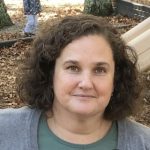 Anne Bladen has spent her career supporting families, children and students. After earning her BA in Anthropology from Bryn Mawr College, she worked as a bilingual Welfare Caseworker in Willimantic, CT, during a time period marked by the AIDS crisis, opioid epidemic, and severe cuts to social programs. Seeing the challenges her clients faced, Anne decided to shift gears and focus on making an impact earlier in people’s lives. Reflecting on her volunteer work with young children in high school and college, she applied to UConn’s Teacher Certification Program for College Graduates.
Anne Bladen has spent her career supporting families, children and students. After earning her BA in Anthropology from Bryn Mawr College, she worked as a bilingual Welfare Caseworker in Willimantic, CT, during a time period marked by the AIDS crisis, opioid epidemic, and severe cuts to social programs. Seeing the challenges her clients faced, Anne decided to shift gears and focus on making an impact earlier in people’s lives. Reflecting on her volunteer work with young children in high school and college, she applied to UConn’s Teacher Certification Program for College Graduates.